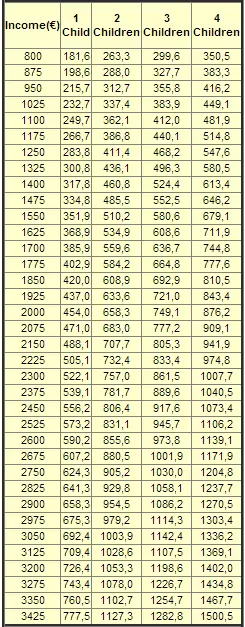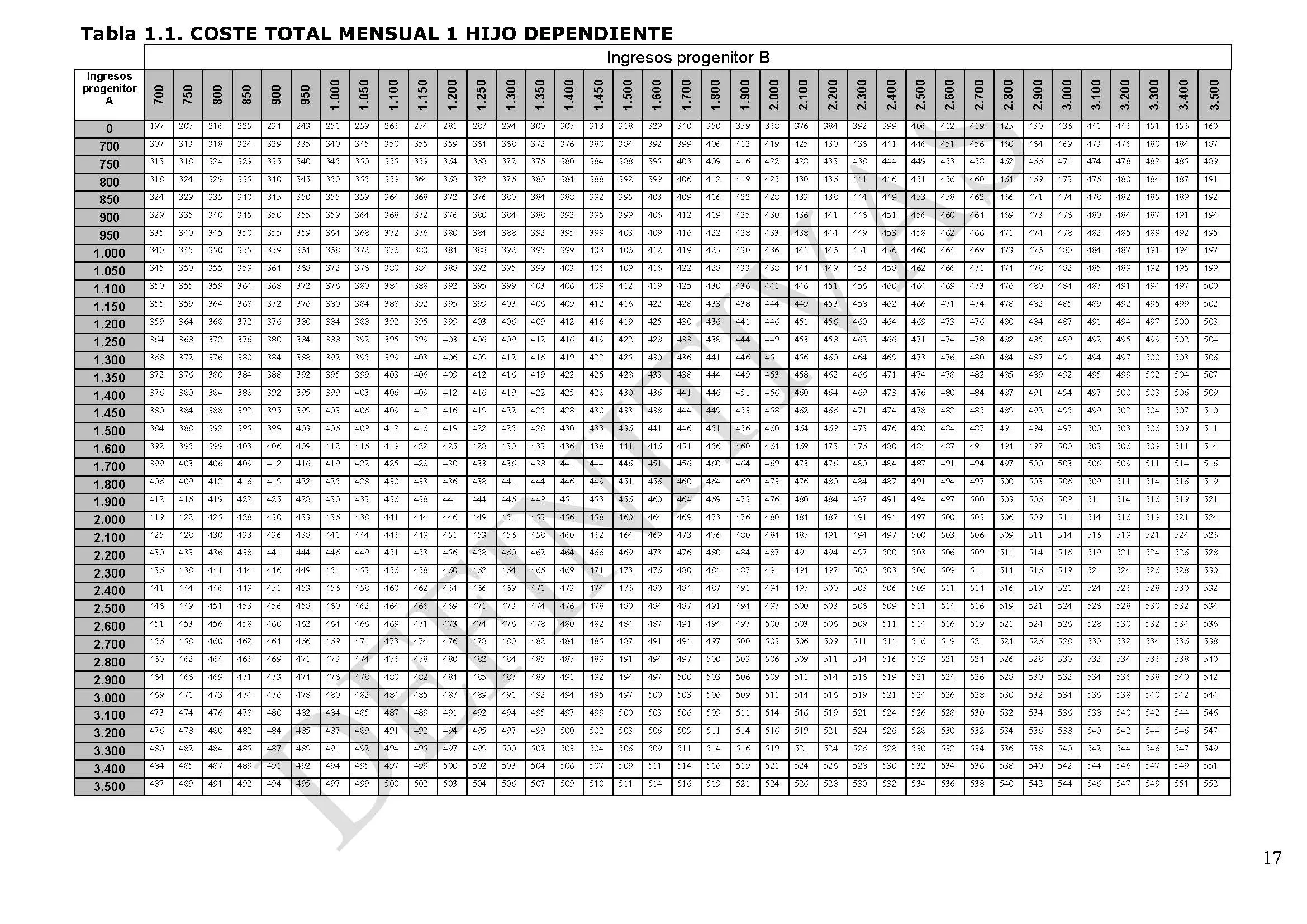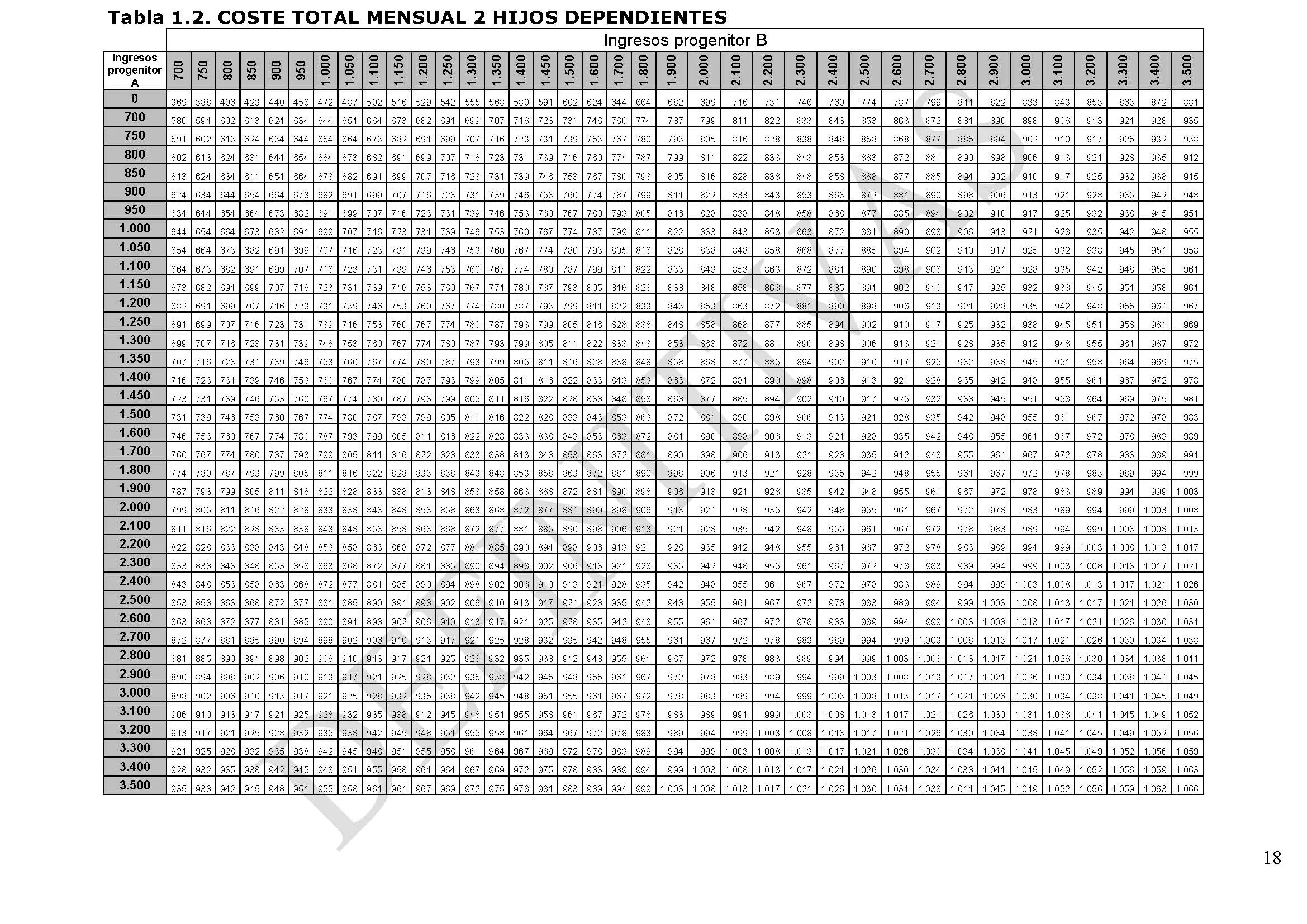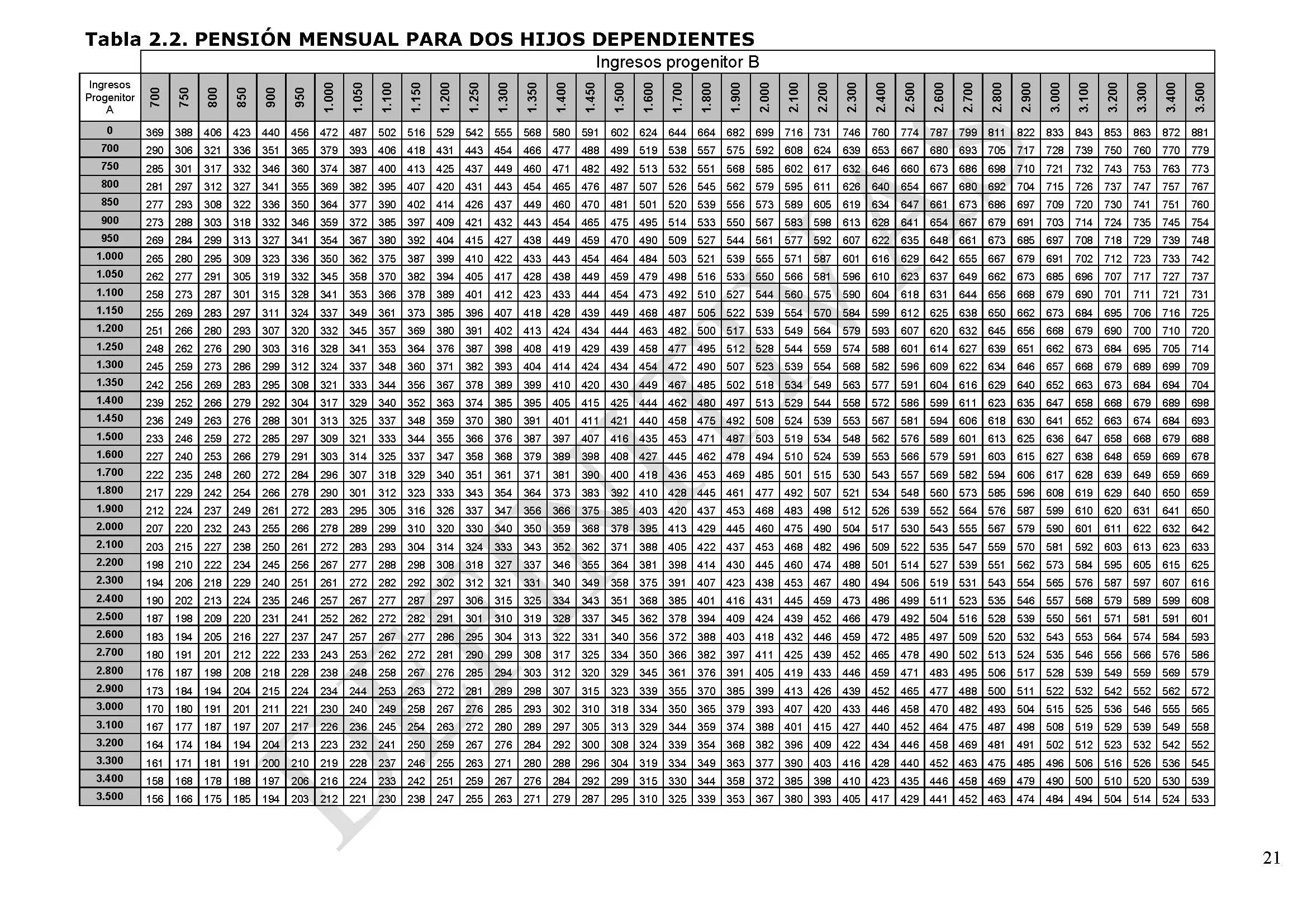A divorce in Spain does not in any way reduce the responsibilities - financial or otherwise - that a parent has towards their child. In fact, child support in Spain has been growing important in Family Law: worth being aware. When dealing with the topic of child support and parental responsibility, the concept of child maintenance - known as la pensión alimenticia in Spanish - covers that which is necessary for the sustenance, housing, education, clothing and medical provision of their children.
1. Payments of an Indefinite Nature
This responsibility does not disappear upon the child reaching the age of 18, but it does change in the sense that:
- The right to maintenance is no longer unconditional
- For the right to continue, proof of a continuing need is required
- The amount may reduce to a minimum
- There is no longer a preference over other relatives
Indeed, the maintenance payments will continue indefinitely if a child is unable to otherwise survive economically or if their education has not been completed or if they are unable to find a job through no fault of their own. The payments are normally a fixed cash amount paid monthly and the amount to pay depends on the following criteria:
- The child’s needs
- The economic resources of the parent
- The economic resources of the other parent
Although both parents are liable economically for their children, typically it is the non-custodial parent that pays child maintenance unless there is shared custody whereupon a joint fund is normally established into which both parents pay and withdraw when they have custody of the children.
2. Calculating Maintenance Payments
The law does not specify an amount that must be paid, and the parents may decide between themselves as to how much maintenance ought to be paid.
However, such an agreement may be revised by the court which will take into consideration the income and expenses of each of the spouses so that proportionality may be applied. If necessary, the court - either at the instance of the judge or of the ‘Ministerio Fiscal’ (the latter is a legal officer of the court always present where children are involved in a divorce case).
Furthermore, should the circumstances of either parent change, then any agreement or court order may be revisited such that the amount payable by the parent is increased or decreased accordingly. The maintenance sum will also vary according to the IPC or inflation rate.
3. Extraordinary Payments
It should be noted that the concept of ‘child support’ or ‘child maintenance’ does not cover such things as extraordinary bills. These may be such bills that arise without warning, such as healthcare required by the child that is not covered by social security.
Accordingly, it is typical for the amount that both parents should pay (half each or a percentage) in those circumstances to be fixed in the divorce agreement. However, it should be borne in mind always that the concept of freedom to contract is a cornerstone of Spanish law and the parties may always assume whatever responsibilities they wish with regard to payment of the costs and taxes associated with the transfer of property in Spain.
4. Guideline amounts based on Parental Income
The law in Spain does not establish a fixed quantity for maintenance payments in respect of children following a divorce.
Below is a table that may help to give an idea as to how much a court will typically award, based on the income of a non-custodial parent, though discretion lies with the judge in each case.
The Income figure in the first column relates to the income of the non-custodial parent while the figures in the remaining columns are the typical maintenance sums calculated, depending on the number of children.

The General Council of the Judiciary in Spain released guidelines in 2013 on the amount of child maintenance that parents should pay in cases where the family unit is split-up.
While merely indicative and provided to assist judges when determining the quantity of child support required, it is expected that the new guidelines will be extensively used by Family Courts across Spain to establish the amount of any pensión alimenticia or child maintenance that the court will order to be paid following a divorce or separation.
The guidelines were developed in conjunction with the Institute of National Statistics and involved compiling figures with regard to average spending and income of parents with dependent children, in order to determine the financial cost of supporting dependent children.
Furthermore, complex adjustments are made according to whether there are two or more dependent children, the region in which the children live and the size of the town or city in which they live, since these impact on the costs involved.
5. Guideline Figures based on Shared Custody
Bear in mind the following when viewing the tables: Tables 1.1 - 1.2: The below figures denote the estimated costs per child in situations where the custody of the children is shared between both parents.
The judge should then apportion responsibility for payment of the relevant amount between the parents according to the circumstances of the case. The costs do not included the bills associated with a mortgage or renting of the principal residence, nor was the amount spent on education included.
Responsibility for payment of these additional costs would need to be applied and distributed between the parents, again according to the circumstances of the case.
Table 1.1 - Costs of bringing-up one child - shared custody


6. Guideline Figures based on Single Custody
Tables 2.1 - 2.3
The below figures refer to those situations in which the custody of the children has been awarded to one of the parents only, with access awarded to the non-custodial parent. The amounts that appear in this case refer to the amount that the non-custodial parent should pay towards the maintenance of the children.
Should the needs of the children to be housed be satisfied by the fact that the use and enjoyment of the family home has been attributed to the parent with custody, then the only amount that should be added to the maintenance amount contained in this table is that relating to the educational costs of the children.

Suggested child support in Spain: payment for bringing-up one child (single-parent custody – no housing and education)
Table 2.1 – Suggested child support in Spain: payment for bringing-up one child (single-parent custody – no housing and education)

So, while normally no time-limit is envisaged nor stated for the above ‘custodial-terms’, as a result it is quite common for the non-custodial parent to ask, until what point will they have to pay child maintenance? For how long will their visits be regulated by the divorce decree?
7. Economic Independence
Both the custody of the children and the visitation rights of the non-custodial parent terminate once the children reach the age of majority at 18 years of age, automatically.
This happens together with the parental rights and responsibilities over the child terminating. However, the obligation to pay child maintenance ends when the children have economic independence, such that, if the children continue with their education, it will be necessary to continue making child maintenance payments until such time as their studies have completed plus a prudent time period to allow for the search for work.
It is understood that the studies undertaken by the child must bear fruit and be reasonably successful, such that it is insufficient for the child to simply enroll for a course, year after year, but rather that there must be some type of degree or diploma sought and obtained.
Where studies are undertaken, it is necessary to request before a judge, the termination of the obligation to pay child maintenance, as in such cases they do not extinguish automatically. This is achieved via the proceedings known as ‘modification of measures’ (modificación de medidas). While there is in existence a divorce decree that establishes the obligation to pay the child maintenance, then such obligation shall continue to exist, and accordingly it is important to initiate the modification of measures before stopping any payment.
8. Use and Enjoyment of the Family Home
Another of the important components that may form part of the divorce decree relates to the use and enjoyment of the family home (as opposed to the ownership of same which does not change).
When there are minor children of the marriage, use and enjoyment is attributed to the custodial parent in whose company the children remain, and for their benefit. As a result, it will become necessary to request that this right to use and enjoyment be extinguished for the non-custodial parent to have access to home.
In such proceedings the non-custodial parent may request their own personal use and enjoyment of the home or the sale of the property free of charges and the termination of the matrimonial assets regime and the distribution of those assets.
9. Are child maintenance awards ever reduced?
Conscious of the difficult financial situation in which many people find themselves, judges are nowadays prepared to permit somewhat surprising reductions in child maintenance and alimony provisions, previously agreed by the parents of the child or awarded by the court.
A reduction may be achieved by bringing a claim for “modification of judicial measures” in which it is alleged that there has been a substantial change in the financial situation of the non-custodial parent. If the income of this parent has reduced or if their general financial situation has worsened, it is possible to request a “modification of judicial measures”.
As concerns children who are of an age to be joining the workforce (though we should not forget that one may be obliged to make maintenance payments to other members of the family too), and where they manage to secure work, it is permissible to request a “modification of judicial measures”.
In fact, a “modification of judicial measures” may be requested even if the child is still studying but not meeting their obligations as students, that is to say, that their academic performance is not favourable. The age of the person receiving the maintenance payments is not necessarily decisive at the point when considering a modification of the payments, but the economic situation and factors out of the child’s control when seeking employment.
There is even Jurisprudence from the Supreme Court that affirms the non-retroactive nature of maintenance payments such that, the fact of making a claim in court for the adjustment of maintenance payments does not remove the liability to continue making the payments. It is necessary to wait until the judge reaches a judgment before paying a reduced amount.








